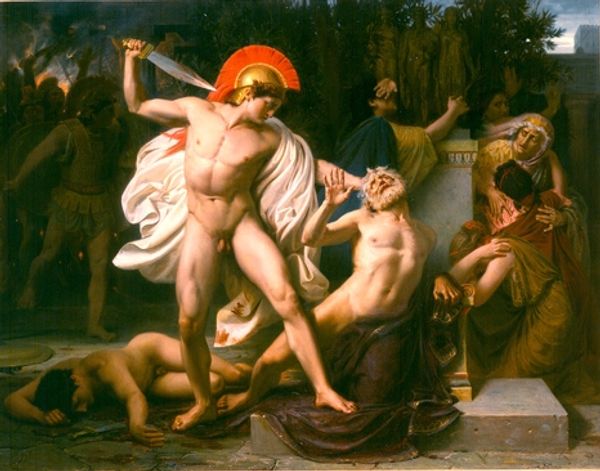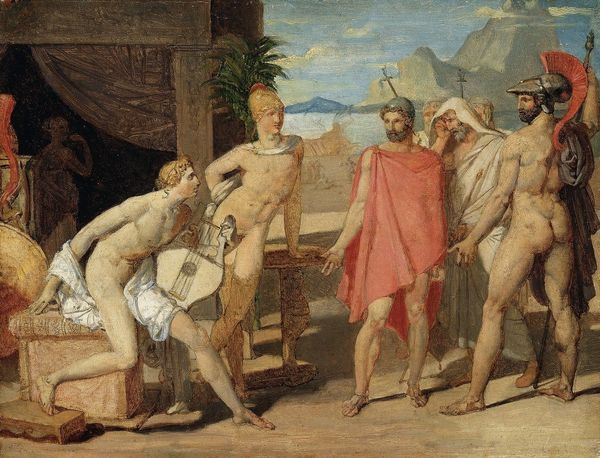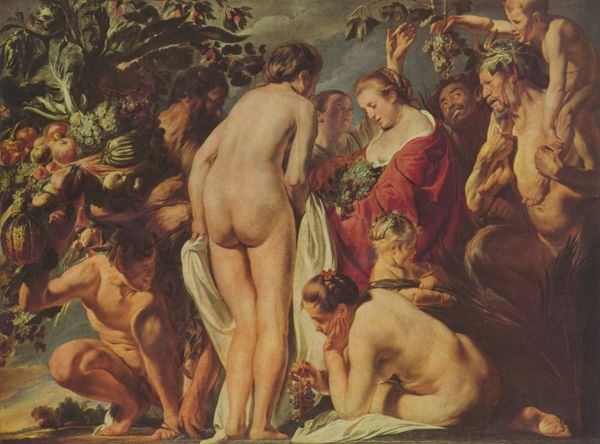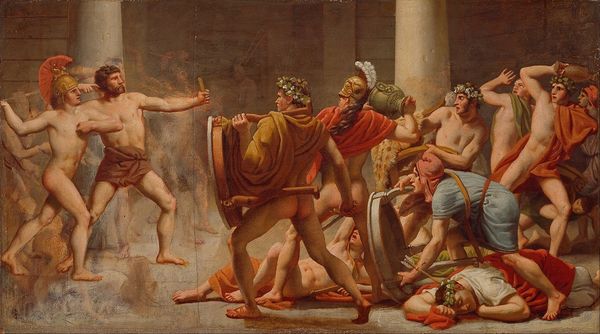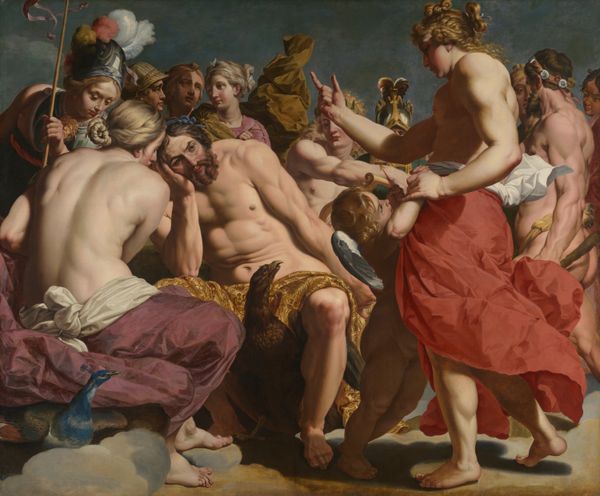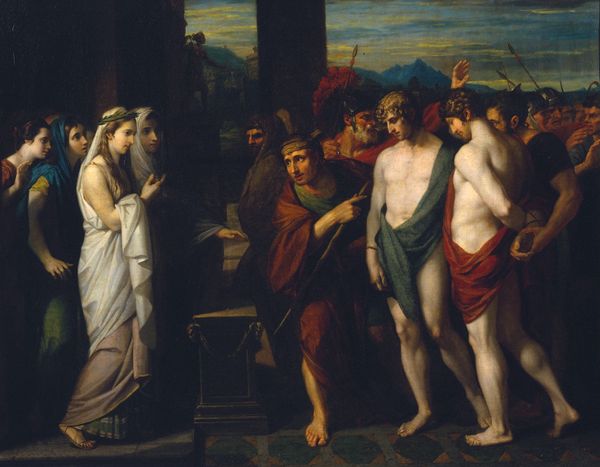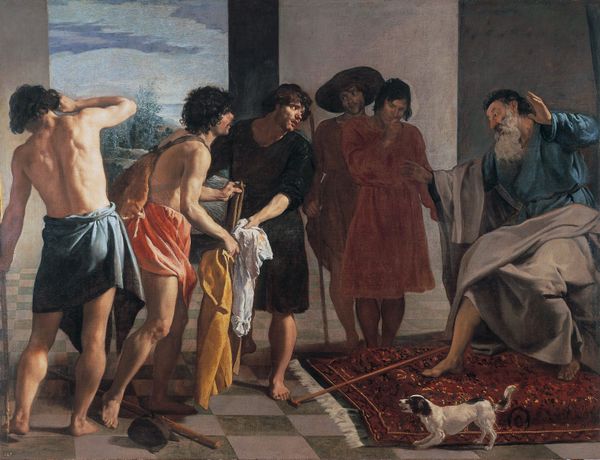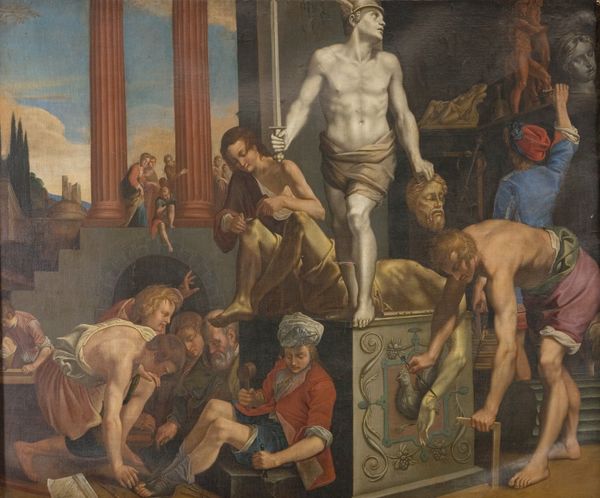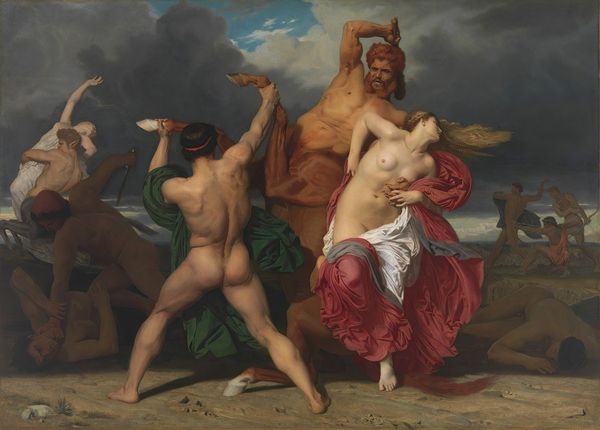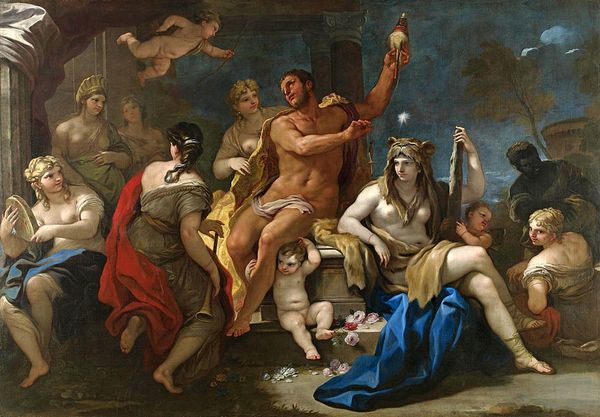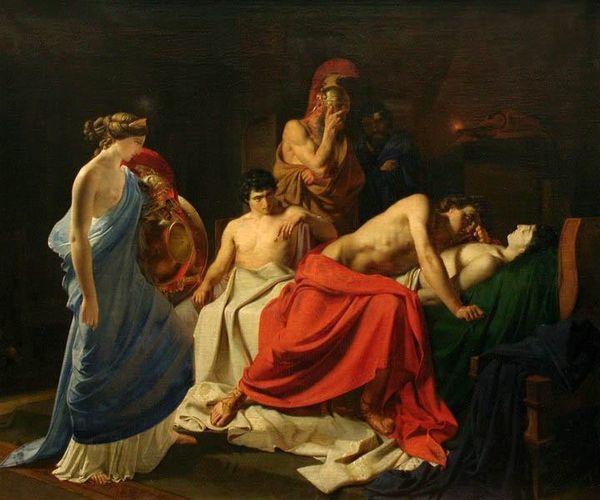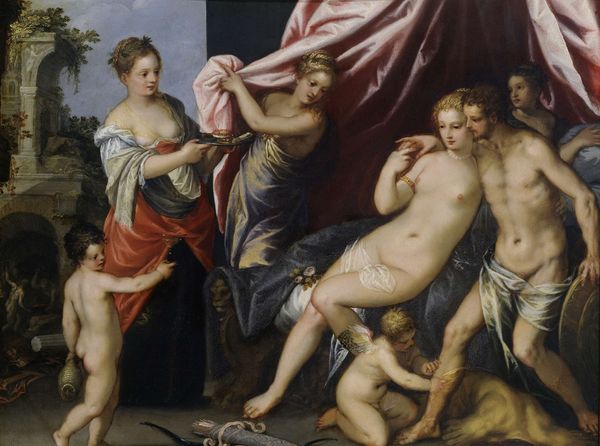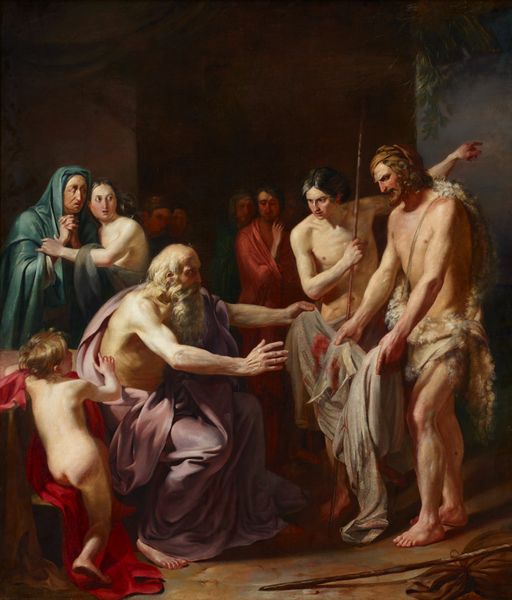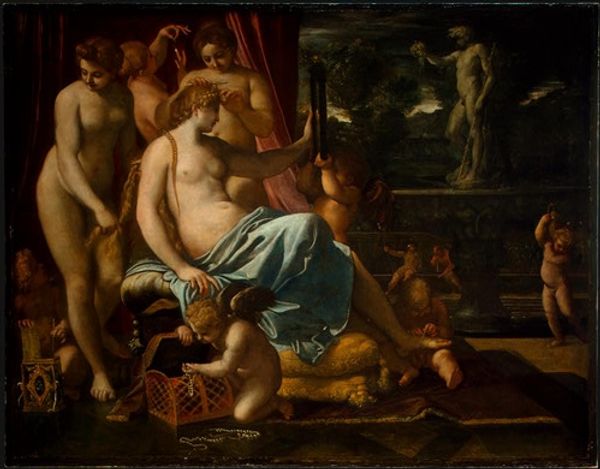
Ambassadors Sent by Agamemnon to Urge Achilles to Fight 1801
0:00
0:00
jeanaugustedominiqueingres
École nationale supérieure des Beaux-Arts (ENSBA), Paris, France
painting, oil-paint
#
portrait
#
neoclacissism
#
allegory
#
painting
#
oil-paint
#
war
#
figuration
#
oil painting
#
roman-mythology
#
underpainting
#
mythology
#
human
#
history-painting
#
academic-art
#
portrait art
Dimensions: 63.5 x 82.55 cm
Copyright: Public domain
Editor: This is "Ambassadors Sent by Agamemnon to Urge Achilles to Fight," painted in 1801 by Jean-Auguste-Dominique Ingres. It's an oil painting, and it feels…staged, almost like a theatrical production. So, what kind of visual stories do you think Ingres is trying to tell here? Curator: Note how the figures seem deliberately arranged, almost like classical sculptures. Ingres is consciously evoking the visual language of ancient Greece, of course, and the idealized forms. How do these forms help convey a particular set of values? Editor: They do look like statues come to life. You mean values like heroism, maybe, or reason? It’s so different from the drama of Romanticism. Curator: Precisely. But look closer at Achilles. He is placed apart, and at his side is Patroclus. Notice anything significant about their posture, in contrast to the ambassadors? Their stance indicates refusal. What symbolic weight does Achilles’ rejection hold? Does it speak to pride, fate, or perhaps a critique of war itself? The visual language Ingres employs gives clues. Editor: I see it now. The ambassadors are literally extending their hands, begging, while Achilles is turned away. It’s powerful! Perhaps this reflects the futility of war when it’s driven by ego? Curator: Indeed. This scene becomes a mirror reflecting eternal conflicts and their enduring impact on the human spirit. What strikes me the most is the timeless quality – even though it’s referencing antiquity. Editor: This has revealed much deeper meanings than what meets the eye! Now I see there are hidden messages embedded through the symbolism and figures used. Thank you!
Comments
No comments
Be the first to comment and join the conversation on the ultimate creative platform.
